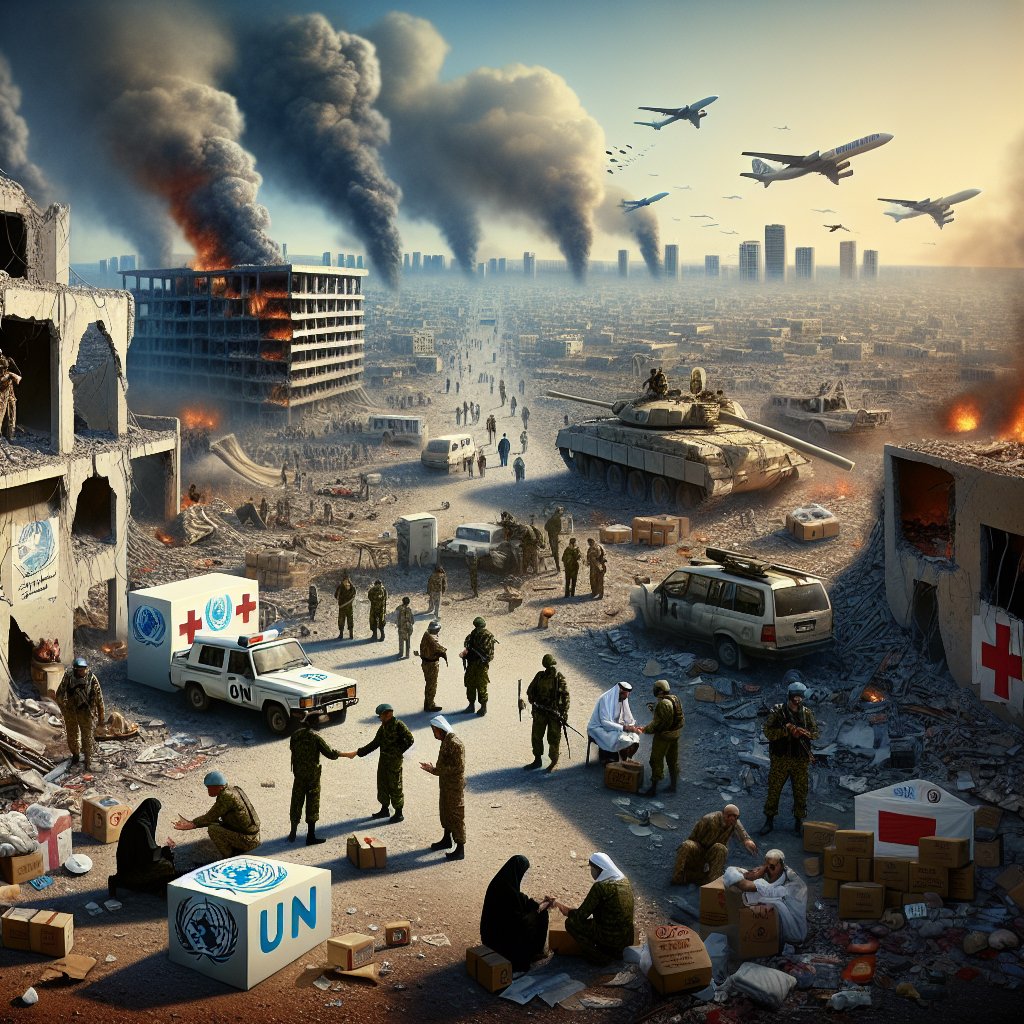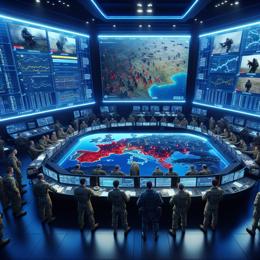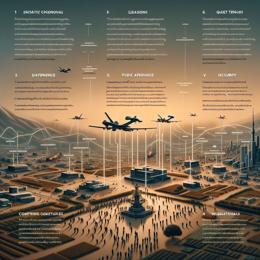Content created by AI
Amid UN Security Council Appeals, Israel Seeks Control in Gaza as Biden and Netanyahu Discuss War Outlook
Tensions escalate in the Middle East as Israel fights to gain full control over northern Gaza, targeting Hamas militant strongholds. This aggressive push follows substantial discussions between US President Joe Biden and Israeli Prime Minister Benjamin Netanyahu regarding the ongoing conflict that marks its 11th week. The discussions, centering on military objectives and protecting civilian lives, transpired as the international community, spearheaded by the UN Security Council, calls for amplified aid to alleviate the humanitarian crisis plaguing Gaza.
As smoke and chaos envelop Jabalia, reports from ground zero speak of unrelenting Israeli airstrikes and artillery fire that have surged deeper into civilian territories. The Israeli military confirms that the operation aims to dismantle the Hamas leadership while safeguarding the lives of civilians and facilitating the release of hostages held by the militant group.
The dialogues between President Biden and Prime Minister Netanyahu have drawn attention due to their crucial implications for the trajectory of the conflict. The White House revealed that both leaders discussed the phased approach of the Israeli military and the critical need to minimize civilian casualties. Despite the increasing death toll and humanitarian predicament, the two governments have refrained from endorsing a ceasefire. They argue that such a move may grant Hamas, which has ties to Iran, the opportunity to rearm and regroup.
The United States has maintained a delicate stance, supporting Israel's right to defense and pledging to uphold Israel's qualitative military edge in the region – yet showing apprehension over the spiraling civilian harm and the plight of Gaza's populous.
Notably, this past weekend, the UN Security Council softened its stance to avoid a potential US veto, advocating for "safe, unhindered, and expanded humanitarian access" to Gaza without calling for an immediate cessation of hostilities.
Desolation rises with the Palestinian death toll, reported by the health ministry to have reached 20,258, and fears that thousands more remain trapped beneath the rubble. Remarkable too is the Israeli loss, as the nation mourns the death of 154 soldiers and the hostage situation precipitated by Hamas' incursion that resulted in Israeli casualties and captives.
Amidst the unfolding despair, Prime Minister Netanyahu vows to press on until all Israeli objectives are reached, which includes, but is not limited to, the total eradication of Hamas and the safe return of hostages. Meanwhile, targeted bombardments continue throughout Gaza, even in regions that civilians were urged to flee to, ironically—the supposed refuges becoming new epicenters of conflict.
The Israeli Defence Forces (IDF) have also reported tactical victories, alleging the destruction of Hamas tunnels and headquarters despite claims of resistance from Hamas' Al Qassam Brigades, which boast of countering Israeli tanks near Jabalia.
The ramifications of the ongoing conflict extend beyond Gaza's borders as regional dynamics shift in response. Yemen's Houthi forces, aligned with Iran, have launched assaults on global trade routes in the Red Sea, disrupting maritime navigation in purported retaliation for the Gaza offensive—a testament to the conflict's broader regional impact.
As the incursion presses on in Gaza, the international community faces the urgent task of navigating the complexities of war: striving to safeguard human rights and upholding the pursuit of a lasting peace amid a somber backdrop of geopolitical strife.










